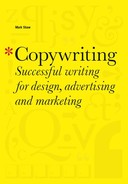Interview: Vincent Stanley, Patagonia
Vincent, a published author and poet, is the in-house senior copywriter at Patagonia. He spends half of his time managing the editorial department and the rest writing pieces, managing the company voice and looking after the writing of the catalog and website. With what time that leaves he is busy with his creative writing, and still loves traveling. He has combined traveling with copywriting for 35 years, and should be saluted as a true master of the craft!
Aged 17 I traveled with a backpack and portable typewriter with dreams of being a writer. When I came back, Patagonia was just evolving from a climbing-equipment firm into an outdoor clothing one. I thought I’d spend six months there to get money to travel but it’ll be 35 years in March!
During the 1970s, Patagonia produced one catalog a year, perfect bound, with beautiful photos. It used two primary writers and had a simple, clear voice with a lot of authority, from the point of view of the expert climber. The values are much the same now, and the company has the same owners. When we started we turned over $200,000 a year; now we do $275 million!
I was sales manager but didn’t want full-time work as I wanted to write. I quit and freelanced for 15 years, working for Patagonia and others. I drew on my experiences as a feckless traveler and have had a lot of fun writing for them.
I was always around climbers (although I’m not one myself) and I take their voices and make it the company’s. It’s quite easy for me to develop this but it’s hard to provide the direct experience. If I have to write about places I haven’t been I look them up in books. Some of the other writers can provide the real climbing experience. Patagonia takes tremendous care to ensure a product works brilliantly for its intended use, so there’s plenty to say, but we need real climbers and surfers as writers for their genuine experience of the sport.
The culture of Patagonia is about climbers and surfers, and their attitude to life, which is close to mine, but we aim for a fairly neutral tone of voice. The aim is to convey their values and attitudes – playful, anti-authoritarian, and interested in the natural world, as opposed to the artificial world of commerce. There is a strong environmental component to the voice. Climbers would go back to spots they’d visited and find them damaged by pollution or climate change. This started in the 1980s and now is a primary concern. We run an environmental campaign every year, and the catalog has at least one environmental aspect linked to this.
The copy is now a lot shorter but the voice is essentially the same. We used to have every product in the catalog, but now we only have about 25 percent at any one time. We dedicate about half the space to selling products and half to branding, which includes introducing our environmental stance, essays from the field, and full-page photos.
We’re learning how to make the best use of the web. The catalog sells off the page, but 70 percent of business comes through the net, and it also sends people into stores. We use the same product copy but most online copy is bullet-point technical detail that visitors access by clicking on pictures. This is a completely different process from using a catalog. We put a lot more information on the web. Long pieces have to change, with shorter paragraphs to suit reading on the screen. It is a different kind of content.
We use about seven freelance writers each season. We have in-house editors and some writers. We have a tone-of-voice guide, which I wrote two years ago, with examples of good and bad copy, and tips such as “write as though you’re writing to a friend.” If a writer likes fly-fishing, we use him or her on fly-fishing, surfers write surf stuff, and women write about the women’s gear. It’s hard for men to write credibly about, say, bra copy. Technical climbing pieces lack authenticity if not written by a climber. A lot of good writers never get the knack of our copy. It needs to be along the lines of poetry – you have to get so much across in just two or three lines.
I am part of a coterie of writers using copy to pay the bills: a couple are quite successful, one as a novelist, the other as a nature writer. I edit a lot these days: I find this easier as it doesn’t seem to use the same part of the brain as writing copy. Copywriting is about being natural. When you get stumped you start to strain in order not to be boring, and then you do your worst writing.
